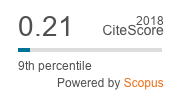La Subjectivité du Bien-Être Dans la Santé
DOI :
https://doi.org/10.1590/0102.3772e3547Mots-clés :
Bien-être, Mieux-être, Pathologie, Évaluation, Inter subjectivités, SubjectivitéRésumé
Dans cet article nous illustrerons l’accessibilité à un état subjectif à partir de deux situations cliniques. Nous observerons comment ces deux patients, l’un présentant accident cérébral vasculaire et l’autre, une pathologie neurodégénérative ont pu surpasser leur handicap et déployer leur potentiel créatif, passée la phase d’évaluation psychométrique.
Téléchargements
Références
Bydlowski, M. (2000).Je rêve un enfant. L’expérience intérieure de la maternité. Paris: Odile Jacob.
Engel, G. L. (1980). The clinical application of the biopsychosocial model.American Journal of Psychiatry , 137, 535-544.
Erikson, E. H. (1950).Enfance et société .Neuchâtel: Delachaux et Niestlé.
Lazarus, R.S., & Folkman, S. (1984).Stress, appraisal and coping. New York: Springer.
Vaz-Cerniglia, C. (2006; 26-27 nov.).À 57 ans, comment vivre avec une incapacité nouvelle ? Troubles de la coordination visuomotrice, visuoattentionnelle et visuospatiale. Poster session presented at Perspectives psychologique et neurologique - 6èmecongrès ARIBa. Lyon: Centre de Congrès.
Wechsler, D. (1997).Wechsler adult intelligence scale-Third edition. San Antonio: The Psychological Corporation.



